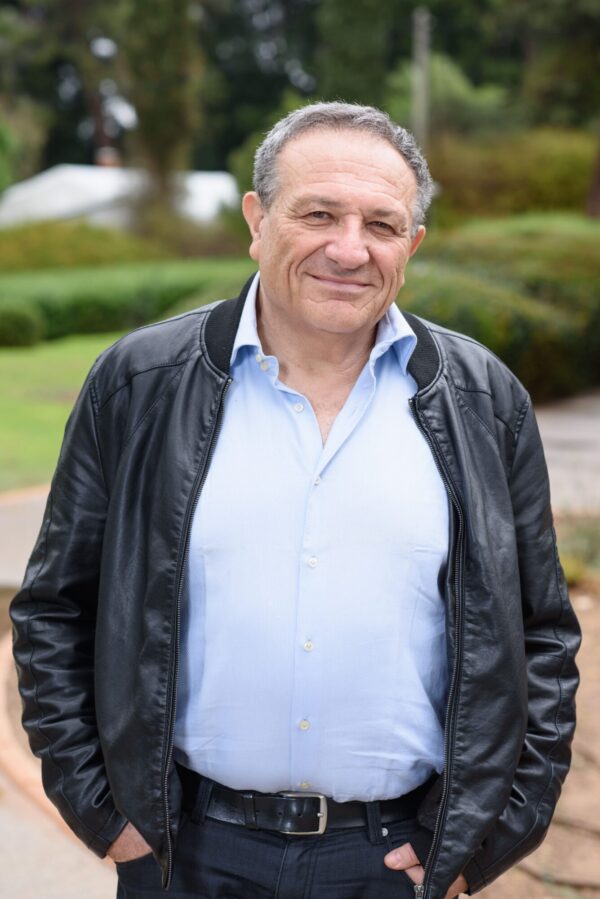About The Speaker
Gershon Kurizki holds the G.W. Dunne Professorial Chair in Quantum Optics at the Weizmann Institute of Science. He is a theoretical pioneer of the fields of quantum open-system control and thermodynamics. He discovered the Anti-Zeno Effect in open quantum systems, found the connection between quantum thermodynamics and the quantum Zeno and anti-Zeno effects and introduced fundamental models of quantum heat machines. He has also made numerous contributions to the theory of quantum measurements and quantum optics. He won the Lamb Award in 2008 and the Humboldt-Meitner Award in 2009 for his discovery of the anti-Zeno effect and his pioneering contributions to the theory of quantum measurements and decoherence control in open quantum systems. Kurizki is Member of the Academia Europea, Fellow of the American Physical Society, the Optical Society of America and the British Institute of Physics. He is the author of “The Quantum Matrix” (Oxford University Press, 2020) and “Thermodynamics and Control of Open Quantum Systems” (Cambridge University Press, 2022).
Event Details
In recent works, we have theoretically and experimentally demonstrated several novel schemes [1-5] for the detection of quantum noise signatures, allowing us to reach unprecedented, ultrahigh sensitivity to quantum noise deviations from Gaussian, thermal or near-thermal statistics.
Conceptually, the general principle behind our schemes is the
nonlinear filtering of the quantum noise. It can be effected by
frequent measurements of photon polarization, by homodyne measurement or photodetection of the noise. An alternative to measurements is unitary:
nonlinear interferometry of few-mode noise. Both approaches yield nonlinear filtering that transforms thermal or close-to-thermal noise input, which is almost void of information on random processes in the medium, into a strongly non-thermal/non-Gaussian output that is rich in information on the medium fluctuations.
Work extraction from the output is shown to provide a distinct
signature of the photon statistical noisw.
I will discuss our
theoretical and experimental implementations of these novel approaches:
- Homodyning measurements of a small fraction of a thermal beam that renders it non-Gaussian or squeezed and thereby allows work extraction from the beam [1].
- Interferometers with giant cross-Kerr nonlinearity [2] between thermal photonic beams in cold Rubidium gas: these interferometers are able to render the photonic states strongly non-Gaussian and thereby extract work [3]. They can also provide sub-shot noise phase sensitivity for thermal input.
- Photons undergoing polarization fluctuations, whose temporal correlations are revealed by frequent polarization measurements [4].
- Strong squeezing of initially thermal spin ensembles by frequent photon-probe measurements [5].
These
nonlinear noise-filtering schemes pave the way to a new generation of quantum noise diagnostic tools, with promising applications in quantum information, quantum interferometry and biomedical diagnostics.
References
[1] T. Opatrný, A. Misra and G. Kurizki, “Work Generation from Thermal Noise by Quantum Phase-Sensitive Observation”, Phys. Rev. Lett.
127, 040602 (2021).
[2] I. Friedler, D. Petrosyan, M. Fleischhauer and G. Kurizki, “ Long-range interaction and entanglement of slow single-photon pulses”, Phys. Rev. A 72, 043803 (2005);”Strongly interacting photons in hollow-core waveguides”, E. Shahmoon et al. Phys Rev. A 83, 033806 (2011).
[3] T. Opatrný, Š. Bräuer, A. G. Kofman, A. Misra, N. Meher, O. Firstenberg, E. Poem, and G. Kurizki, “Nonlinear coherent heat machines”, Science Advances 9, 1070 (2023).
[4] S. Virzì, et al.,, “Quantum Zeno and Anti-Zeno Probes of Noise Correlations in Photon Polarization”, Phys. Rev. Lett.
129, 030401 (2022); “Sensing microscopic noise events by frequent quantum measurements”, arXiv 2212.12530.
[5] DBR Dasari et al.,”Anti-Zeno Purification of Spin Baths by Quantum Probe Measurements”, Nature Commun. 13, 7527 (2022).
